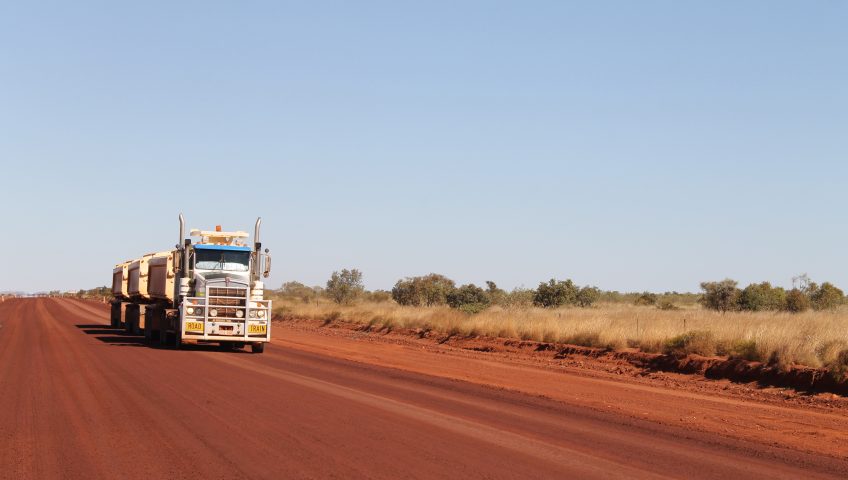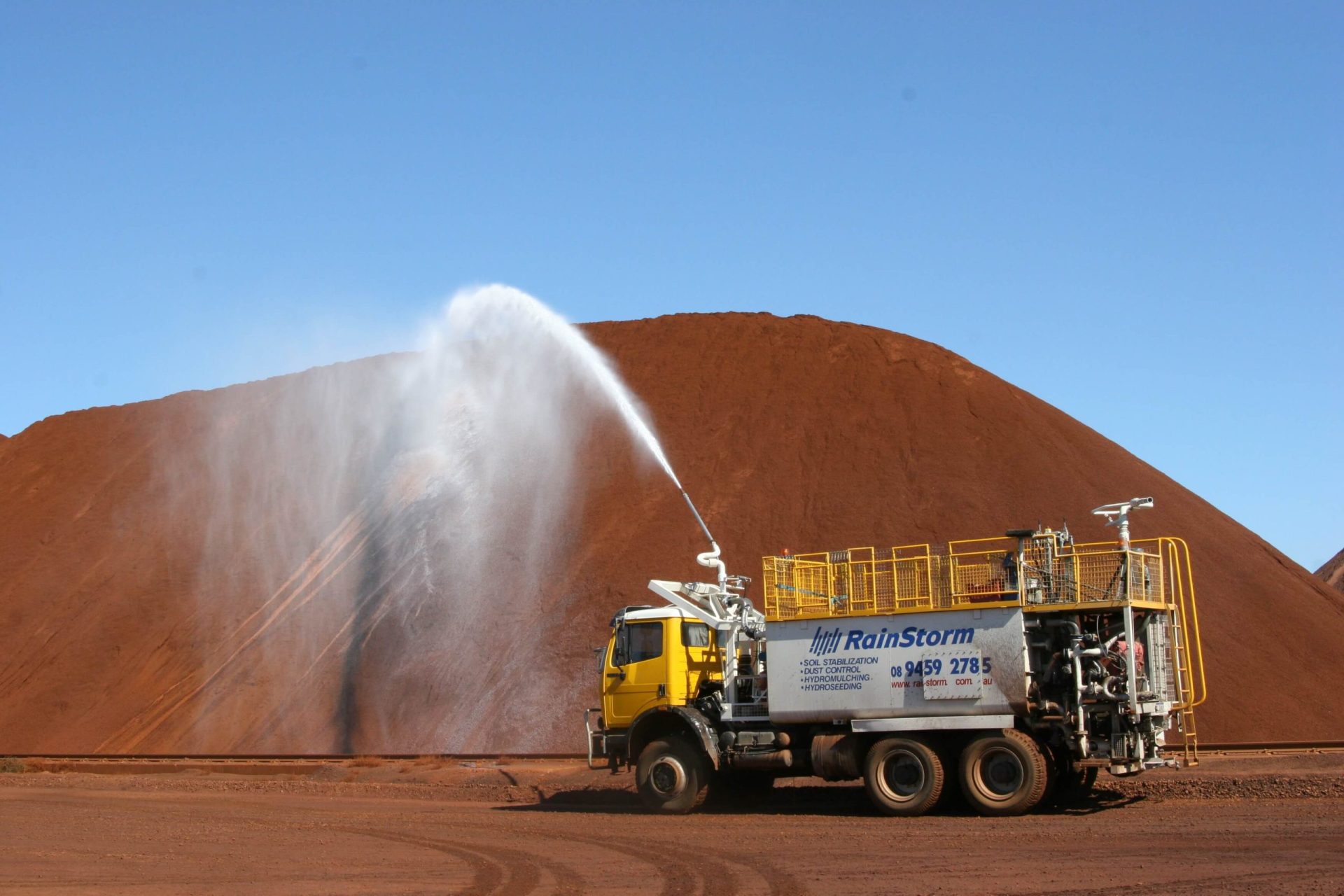What is Used for Dust Control on Gravel Roads?

Gravel roads, known as unsealed roads in Australia, are crucial pathways for transportation and operations in various industries. However, they face a significant challenge: dust. If you’ve ever travelled on an unsealed road, you’re familiar with the thick cloud of dust that can obscure your vision and create safety hazards. This issue goes beyond inconvenience; it poses real challenges for heavy industries, particularly in the mining and material handling sectors. In this guide, we will explore effective methods and solutions for dust control that can greatly improve everyday operations and address this pressing problem, ‘What is used for dust control on gravel roads?’
Understanding the Dust Dilemma
Controlling dust on unsealed roads is a multifaceted challenge that demands a comprehensive approach. Factors such as low moisture, high temperatures, and wind, combined with high traffic volume at speed, cause particles to become airborne. This leads to significantly reduced visibility which in turn poses risks to drivers and site workers. To tackle this issue, a deep understanding of road composition, traffic volume and weather conditions is crucial. There’s no one-size-fits-all solution; each road presents its unique challenges.
Effective dust control demands a combination of tailored methods based on specific road conditions, usage and traffic volume. Water-based and chemical dust suppressants are both effective means of controlling road dust. However, it’s essential to consider the environmental impact of each method when choosing an effective solution. By collaborating with dust control specialists like Rainstorm, operators can lower their dust emissions by upwards of 90-95%, minimising costs and environmental impact, ultimately enhancing safety, ensuring regulatory compliance, and improving operational efficiency.

Reliance on Water in Dust Control
Water, in its simplicity, stands as the most common tool used in dust control. Applied alone, water sprayed on unsealed roads temporarily binds dust particles, preventing them from becoming airborne so long as the ground is wet. Water trucks, equipped with efficient spray systems, are commonly used for this purpose. By keeping the road surface moist, water reduces the suspension of fine material in the air, making roads safe for use until the next application of water.
However, as we’ve become more aware of the environmental impact of our water wastage, Rainstorm has created wet dust suppressants, which are hygroscopic and therefore maintain their moisture from the atmosphere. As a majority of unsealed areas are dirt roads within Australia, our dust control products, DustmagTM and DustLigTM are specifically designed as soil adhesives to lock in moisture for long periods of the year and minimise the need for repeated water output
Water on dust control is water lost. But for situations where water remains the most appropriate method of suppressing fugitive dust, Rainstorm has developed a unique water extender, DustJelTM, which reduces evaporation rates and causes each application of water to last longer.
Chemical Dust Suppressants: Hygroscopic Formulations
For a more targeted approach, chemical dust suppressants like Dustmag and DustLig come into play. These substances, when applied to unsealed roads, adhere to dust particles and road surfaces. This binding action stabilises the road, minimising dust generation. The choice between DustMag and DustLig depends on specific factors, including road conditions and prevailing weather. These suppressants, often in liquid form, are efficient and provide a practical solution for dust control in open areas with heavy traffic. Blends can also be crafted to achieve a combination of effects: Hygroscopic action to draw moisture and binding action to hold super fines together.
Innovative Technologies: Polymers and Surface Gravel Stabilisers
In recent years, innovative technologies have emerged as significant players, especially when it comes to what is used for dust control on gravel roads. Dust control polymers, like Rainstorm’s PolyMag and surface gravel stabilisers offer sustainable, long-lasting solutions. These products, when applied, not only suppress dust effectively but also enhance the durability of the road surface. By preventing the road from breaking down, these solutions reduce the need for constant maintenance, making them both practical and cost-effective in the long run.
Tailored Solutions for Unique Challenges
No two roads are the same, and that’s why customisable dust control solutions are invaluable. Each site presents its unique challenges, ranging from road composition to weather conditions. These variables matter, and a one-size-fits-all approach doesn’t usually suffice.
Customised dust control solutions take these variables into account, offering tailored recommendations that deal with dust problems in an effective way specifically for that site. Whether it’s choosing the right suppressant or understanding the optimal frequency of application, these personalised solutions ensure that the dust control strategy is not just effective but also efficient.
With Dust Creation Comes Responsibility
Beyond meeting industry regulations, maximising efficiency and minimising operational downtime, managing fugitive dust is a serious responsibility that should be met by all operators across all industries. If operational activity causes dust to become airborne, it must be tackled with a comprehensive plan and managed effectively on an ongoing basis. Left unmanaged, fugitive dust impacts negatively on safety, health, the landscape itself, neighbouring ecosystems and nearby communities. Employing advanced dust suppressants and strategic road surface stabilisers is not just about compliance; it’s about best practise. By minimising dust emissions intelligently, the industry can ensure both regulatory adherence as well as good stewardship.
Premium Dust Control Solutions with Rainstorm
To figure out what is used for dust control on gravel roads; it starts from understanding the subtleties of the environment and employing practical solutions. Water, chemical suppressants, innovative technologies, and customised approaches form the foundation of effective dust control. By addressing the individual dust challenge systematically, businesses can enhance safety, operational efficiency, and their overall commitment to responsible management.
At Rainstorm, we comprehend the challenges posed by dust on unsealed roads. Our expertise doesn’t just lie in providing proven products; it’s about offering comprehensive solutions tailored to your specific needs. With our guidance, navigating the complexities of dust control becomes easy and brings the opportunity to create a safer, more efficient operation. Contact us today to schedule a consultation with one of our skilled technicians where we’ll offer personalised assistance and offer our expert advice for all your dust control needs.













